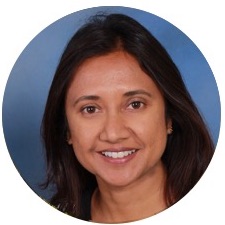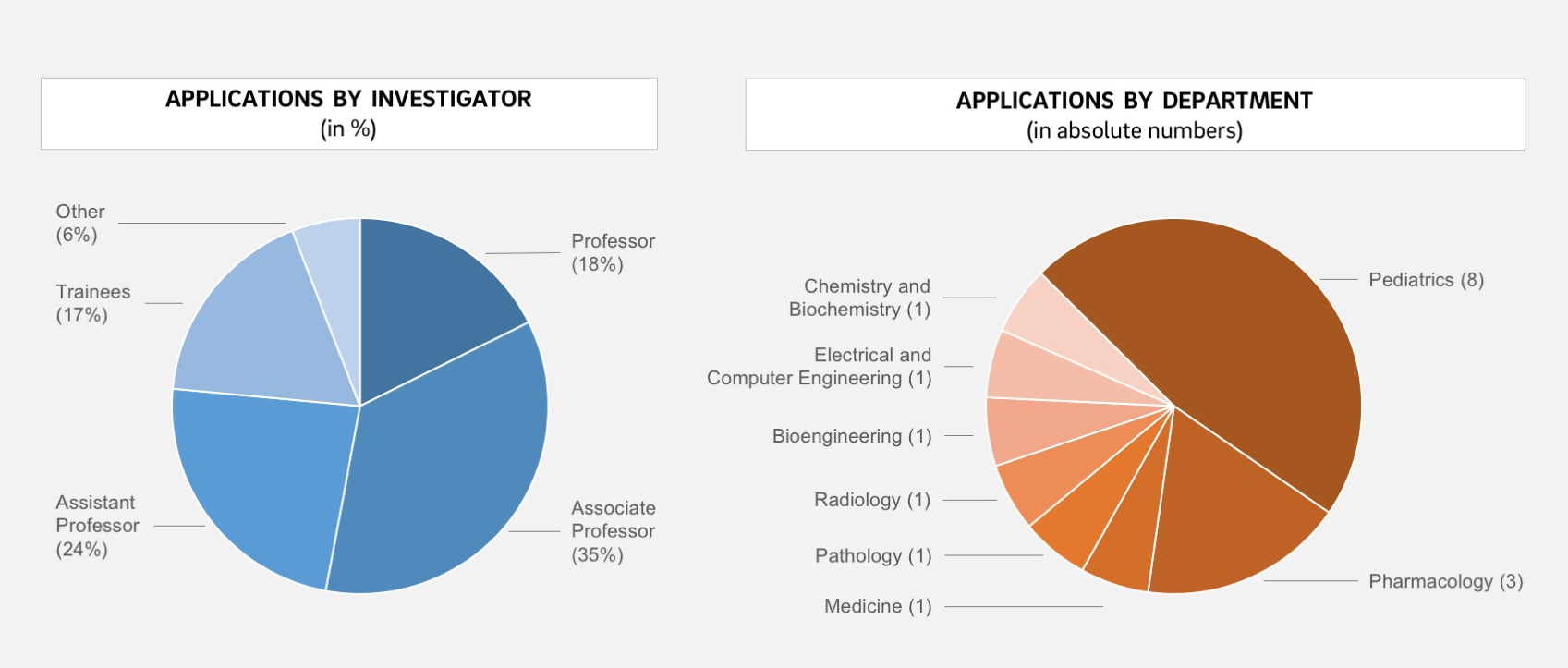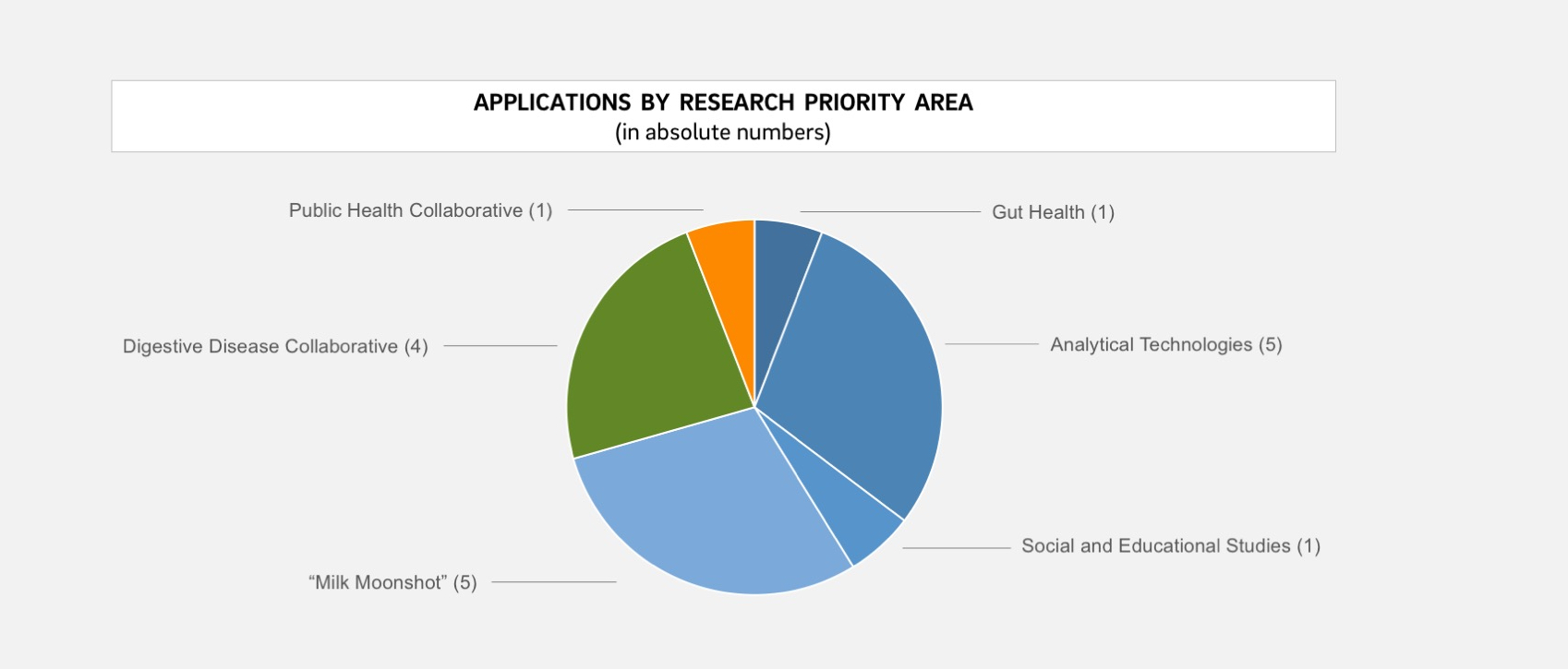2020 MOMI Seeds
Page Content
This marks the third round of our MOMI Seeds pilot grant program. In addition to our regular MOMI Seeds with applicants responding to specific research priority areas, MOMI CORE - for the first time - teamed up with other UC San Diego centers to solicit applications for combined pilot grant programs.
-
MOMI Seeds Pilot Grants - four Research Priority Areas
-
Gut Health: effects of breastfeeding or intake of human milk components on gut health
-
Analytical Technologies: applying analytical technologies to human milk research
-
Social and Educational Studies: research related to social, educational and knowledge management aspects of human milk and lactation
-
"Milk Moonshot": an innovative and creative idea for a project related to human milk and breastfeeding that does not fit in any of the other Research Priority Areas
-
Digestive Diseases Collaborative Seeds Pilot Grants - in collaboration with the San Diego Digestive Diseases Research Center (SDDRC) and the UC San Diego Center for Mucosal Immunology, Allergy and Vaccine Development (cMAV)
-
Public Health Collaborative Pilot Grants - in collaboration with the UC San Diego Institute for Public Health
17
| Number of Applications Submitted
|
$230, 000
| Research funds awarded
|
5
| Number of awards granted
|
2020 Awardees

| Drew Hall, PhDAssociate Professor, Electrical and Computer Engineering
"A Bed-side Electrochemical Sensor for Point-of-care Milk Testing" Human milk oligosaccharides (HMOs) are complex sugar molecules found in breast milk that have been shown to have a strong benefit to infant health and to prevent infectious disease, ultimately resulting in lower mortality. In particular, infants who received milk containing a particular HMO, 2′-fucosyllactose (2'FL), have significantly lower incidence of certain infections. As such, 2'FL has attracted strong research attention; however, there is no sensor platform capable of measuring 2'FL without sending it to one of only a few laboratories in the world capable of rigorous quantitative HMO analysis. In this project, we aim to design a simple point-of-care biosensor to quantify HMOs in breast milk. We propose to use an electrochemical sensor similar to a glucometer to detect the presence of 2'FL. We believe this approach will be broadly useful in human milk research to rapidly and quantitatively detect 2'FL and eventually other HMOs at the point-of-care.
Dr. Hall is an Associate Professor in the Department of Electrical and Computer Engineering with an affiliate appointment in the department of Bioengineering at the University of California San Diego (UC San Diego) where he leads the Biosensors and Bioelectronics (BioEE) research group. Dr. Hall’s research interests lie at the nexus of engineering the life sciences. Specifically, his research group works on bioelectronics, biosensors, analog circuit design, medical electronics, and sensor interfaces.
|

| Anthony O’Donoghue, PhDAssistant Professor, Skaggs School of Pharmacy
"Quantification of Proteolytic Activity in Human Milk using Mass Spectrometry" Human milk contains a variety of proteases that, together with the infant’s own digestive enzymes, digest milk proteins and release bioactive peptides in a concerted time- and location-specific matter throughout the infant’s gastrointestinal tract. The functional roles of human milk proteases in combination with the infant’s own enzymes have not been well characterized. It is of paramount importance to better understand these enzymes because (i) these enzymes are not fully developed in the digestive system of infants that have been delivered prematurely, (ii) milk enzyme activity is altered during milk processing and storage, and (iii) milk enzymes are not provided when the infant receives formula instead of human milk.
In this project, Dr. O’Donoghue will perform an in-depth biochemical analysis of the proteases that are present in human milk, determine the functional activity of these enzymes and how they change over the course of lactation, and evaluate how pasteurization procedures alter protease activity.
Dr. O’Donoghue is an Assistant Professor in the Skaggs School of Pharmacy and Pharmaceutical Sciences at the University of California, San Diego. He is a faculty member of the Center for Discovery and Innovation in Parasitic Diseases.
Dr. O’Donoghue received his PhD degree in Biochemistry from the National University of Ireland, Galway and completed a postdoctoral fellowship at University of California, San Francisco. He joined UC San Diego in 2015, and leads a research program dedicated to discovering proteases that play key roles in human diseases. Recently, he has begun to unravel the complex role of proteases in human milk digestion.
Dr. O’Donoghue is the recipient of the 2013 Bioanalysis Young Investigator Award for his development of a mass spectrometry-based method to detect and quantify proteases in human biofluids. He is a co-founder of Alaunus Biosciences in San Francisco, a preclinical-stage immune-oncology company and is currently the President of the International Proteolysis Society.
|

| Sydney Leibel, MDAssistant Professor, Department of Pediatrics
"The Role of Early Food and Environmental Exposures through Breastmilk in the Development of Atopic Conditions in a Preterm Population"
Preterm infants have a higher likelihood of developing allergic conditions compared to the general population. There has been increasing evidence to support the protective role of breastfeeding and early food exposure in the development of allergic disease. There is a paucity of information regarding the ability of breast milk to induce tolerance or sensitization to allergens and how the maternal diet and environmental exposures affect the contents of breast milk. The project is looking to prospectively assess whether nutrition through breastmilk and pre-/peri-/post-natal exposures (delivery method, antimicrobials, pets in the home) impact the development of asthma, eczema, and environmental and/or food allergies. The generated knowledge will provide a unique opportunity to identify early life exposures that are associated with the development of allergic disease in preterm infants.
Dr. Leibel is board certified in Allergy/Immunology and completed his fellowship at Washington University in St. Louis. He practices at Rady Children's Hospital where he helped to develop the multidisciplinary Severe Asthma Clinic. This clinic focuses on addressing complex medical and social issues to reduce asthma burden in this vulnerable pediatric population. His other research interest involves investigating potential mechanisms to prevent the development of asthma. Dr. Leibel is involved in multiple studies exploring both early-life exposures and interventions that may impact asthma and allergy management in the future. |

| Digestive Diseases Collaborative Seeds Pilot Grant
Hiutung Chu, PhD
Assistant Professor, Department of Pathology
"Mini Guts: Understanding the Effects of Bacteria and Human Milk on Intestinal Health (part 1)" The maintenance of intestinal health requires an intact gut barrier separating our body and immune system from the external environment. Once this barrier is disrupted, the immune system becomes exposed to intestinal microbes, toxins, and other factors found in the gut lumen. Chronic barrier dysfunction has been linked to various inflammatory microbiome-mediated diseases. This collaborative proposal aims to leverage our expertise to explore the interactions between gut bacteria and human milk bioactives in promoting intestinal homeostasis and gut physiology using human enteroid models. Identification of effective human milk bioactives will advance our understanding of how human milk impacts the breastfed infant, aid the development of protective nutritional supplements for combating chronic diseases, and expand our knowledge of host-microbiota-diet interactions.
Dr. Chu is a graduate of University of California, Berkeley where she completed her BS degree in Microbial & Environmental Biology, and received her PhD degree in Immunology from University of California, Davis. She completed a postdoctoral fellowship in mucosal immunology and the gut microbiome at the California Institute of Technology.
Dr. Chu leads a basic research laboratory studying how commensal bacteria modulate host immune responses during health and disease. She is a CIFAR Azrieli Global Scholar in Humans & the Microbiome. |

| DIGESTIVE DISEASES COLLABORATIVE SEEDS PILOT GRANT
Mamata Sivagnanam, MD
Associate Professor, Department of Pediatrics
"Mini Guts: Understanding the Effects of Bacteria and Human Milk on Intestinal Health (part 2)" The maintenance of intestinal health requires an intact gut barrier separating our body and immune system from the external environment. Once this barrier is disrupted, the immune system becomes exposed to intestinal microbes, toxins, and other factors found in the gut lumen. Chronic barrier dysfunction has been linked to various inflammatory microbiome-mediated diseases. This collaborative proposal aims to leverage our expertise to explore the interactions between gut bacteria and human milk bioactives in promoting intestinal homeostasis and gut physiology using human enteroid models. Identification of effective human milk bioactives will advance our understanding of how human milk impacts the breastfed infant, aid the development of protective nutritional supplements for combating chronic diseases, and expand our knowledge of host-microbiota-diet interactions. Dr. Sivagnanam completed medical school at the University of Miami and fellowship in Pediatric Gastroenterology and Nutrition at UCSD. She enjoys seeing a broad range pediatric and adolescent patients, who inform her research goal of understanding the underpinnings of GI diseases in children.
Dr. Sivagnanam leads a basic science laboratory studying diseases of the intestinal epithelium and their effect on intestinal epithelial physiology. More broadly, she hopes to gain a better understanding of the nuanced role of the intestinal epithelium in health and disease. She understands the urgent need for expanded research and advancement in therapeutic options. She is contributing to this need utilizing innovative, murine, human and enteroid models. These models allow for deeper clarity into healthy and disease of the gut. The ultimate goal is elucidation of the pathophysiology of mucosal diseases to allow for development of therapeutic options. |
2020 Program Summary
UC San Diego faculty members were eligible to apply. UC San Diego Postdoctoral Fellows, Medical Fellows, and Residents (Trainees) were also encouraged to apply, but needed to be sponsored by a UC San Diego faculty member.

Specific Research Priority Areas (RPAs) are assigned for each application cycle based on the short- and long-term strategic goals of the center. The 2020 cycle invited submissions and received applications with relevance to the following RPAs:

Each application was assigned to two out of eleven independent peer-reviewers who scored the applications based on relevance to the respective Research Priority Area, innovation, investigator(s), approach and scientific rigor, feasibility, as well as potential for extramural funding.
Show additional content areas below
ContentA1